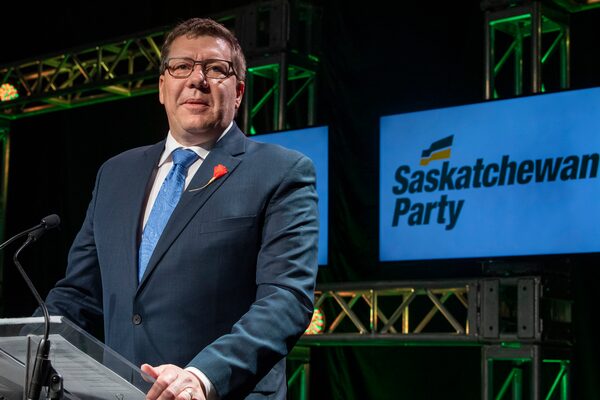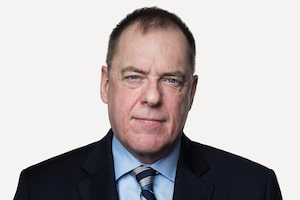
Saskatchewan Premier Scott Moe has been tweeting and telling interviewers that 'Saskatchewan needs to be a nation within a nation,' echoing a parliamentary resolution that recognized the Québécois as a nation within Canada.Liam Richards/The Canadian Press
Of course, Saskatchewan is not a nation within Canada. But Premier Scott Moe is doing more than simply grandstanding.
Central Canadian politicians are once again treating the Prairies as a colonial possession, not fully equal within Confederation. The whole country pays a price when that happens.
The Saskatchewan Premier has been tweeting and telling interviewers that “Saskatchewan needs to be a nation within a nation,” echoing a parliamentary resolution that recognized the Québécois as a nation within Canada.
“When the federal government implements policies that are detrimental to our province, our government will continue to stand up for Saskatchewan people,” Mr. Moe said Tuesday.
He was referring to Prime Minister Justin Trudeau’s declaration at the COP26 summit that Canada would cap and reduce emissions from the oil and gas sector. There has been no substantial consultation on this commitment with the Alberta or Saskatchewan governments, even though such caps could have a severe impact on their economies.
Mr. Moe and Alberta Premier Jason Kenney are both unpopular. Both relaxed pandemic restrictions in the summer, creating a surge of infections in the fall. Armed Forces nurses were dispatched to Alberta to help, while Ontario accepted COVID-19 patients from Saskatchewan. This is Canada at its best.
But we have not been at our best in our efforts to combat global warming. During the federal election campaign, the Liberals made the cap-and-reduce commitment. As a result, they were rewarded with zero seats in Saskatchewan and two in Alberta, the provinces most affected.
Roy Romanow, former NDP premier of Saskatchewan, fully supports the federal government’s efforts to fight global warming. He believes Mr. Moe’s comments were aimed at placating rural voters who form the core of the Saskatchewan Party’s support.
Nonetheless, Mr. Romanow thinks Mr. Trudeau should have made more of a good-faith effort to consult with the Saskatchewan government.
“I think there would have least have been a sense that there was an effort to try to find a bridge over differences that arise,” he said in an interview.
Tom McIntosh, a political scientist who studies Canadian federalism at the University of Regina, believes Mr. Moe’s comments were “grandstanding in an attempt to change the channel,” on the government’s failure to contain the fourth wave of the pandemic.
But he added that, when Ottawa acts in areas of deep concern and interest to the Prairie provinces, “without any kind of consultation, you just add friction to the federation that doesn’t need to be there.”
This is an old, old story: The struggle to win control over their natural resources in the 1920s; the federal election of 1957 – when Prairie voters decisively and permanently ejected the federal Liberals as a majority party; the National Energy Program in the 1980s; the fight over oil and gas caps today. Voters in Alberta and Saskatchewan, and to a lesser extent Manitoba, have always fought against domination by elites in Toronto, Ottawa, Montreal and environs.
It doesn’t have to be this way. People in Saskatchewan and Alberta, especially in urban centres, worry about global warming as much as anyone else. Oil sands producers have committed to achieving net-zero emissions by 2050. The federal government has worked co-operatively with provincial governments during other international negotiations, such as the free-trade agreement with Europe.
If Mr. Trudeau and his most senior ministers had committed from Day 1 to collaboration with the Alberta and Saskatchewan governments, the trajectory of emissions reduction might look a little different, but the commitment would be more dependable because it would have been reached collectively.
This isn’t simply a partisan fight.
Saskatchewan NDP Leader Ryan Meili dismissed Mr. Moe’s comments as those of a leader “trying to change the channel” from mismanaging the COVID-19 pandemic. But “when announcements are happening without us being involved, that’s going to get under our skin,” he told me.
If Mr. Meili becomes premier, “I’m going to work hard to defend and promote the interests of Saskatchewan’s people,” including those in the oil and gas sector.
Ottawa should take note: Mr. Kenney and Mr. Moe may be replaced. But don’t expect the message to change.
For subscribers: Get exclusive political news and analysis by signing up for the Politics Briefing.
 John Ibbitson
John Ibbitson